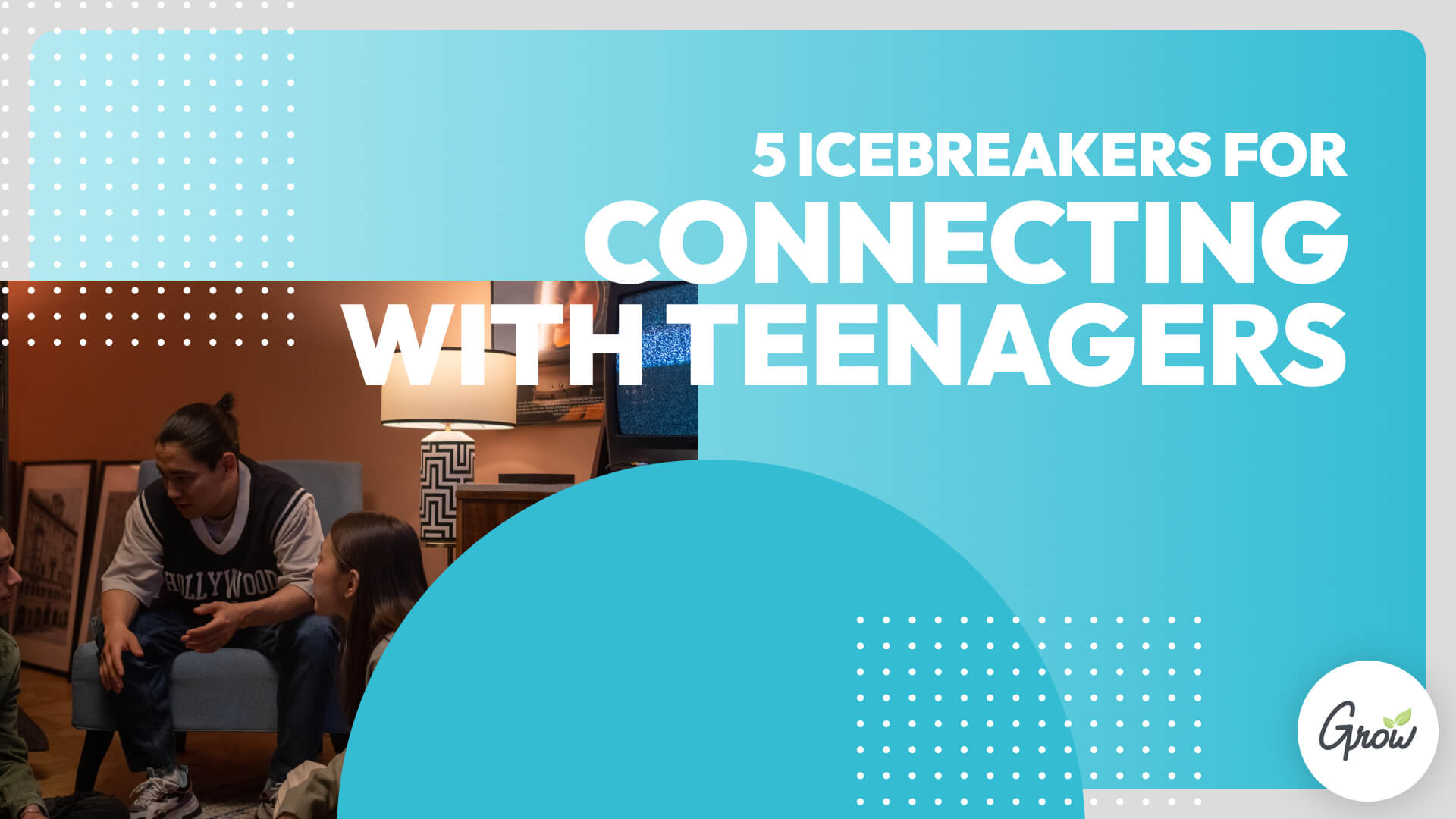If you’ve ever run a small group, you know how intimidating it can feel. You’ve got a group of teenagers who may or may not know each other. They have similar yet completely different experiences, and now you’ve lumped them together to talk about their faith and other intimate parts of their lives.
What could go wrong 😅 ?
In the best-case scenario, they get along without a hitch, and the conversation flows smoothly. But in the worst cases, getting them to introduce themselves can feel like pulling teeth. So what do you do then?
If that sounds like a group you’re leading, don’t worry. You’re not alone. We can’t promise an overnight change in the dynamic of your group, but we can offer you some ways to rethink how to engage and approach the teenagers in your group.
So, if you’re a youth pastor reading this, we’ve got a few ideas for how you can train your volunteers to kick off each of their small group gatherings. And if you’re a volunteer yourself, we’ve got a few strategies for what you can say that might thaw out the conversation and get those teenagers to open up and grow closer together. And all of it starts with why you might be leading a small group in the first place.
Small groups are one of the most important parts of your discipleship strategy (and if you don’t have a discipleship strategy, you can steal ours!) Small groups are spaces where teenagers can start to discuss the things they’ve just heard in the message or lesson. This time with their leader and other teenagers gives them a space to ask questions and start to apply biblical teaching to their own lives in their own way. As a small group leader, you get to help teenagers make connections as they engage with the lesson and start to uncover how their lives can be different as a result.
That means your job is to help facilitate a conversation that gets teenagers thinking about what’s next for them. Instead of supplying all of the answers, an ideal small group is a conversation where the members of the group talk things out together.
But what if your group struggles to get talking? What if things feel awkward and uncomfortable? What if you don’t know how to get them to open up to each other beyond surface-level answers?
Very rarely will a small group start answering questions with the level of transparency and self-reflection we expect. After all, we’re adults. Our brains are fully developed, and we have years of experience with critical thinking and learning to apply new ideas to our lives.
The brain of a teenager is … squishy. It’s trying to make thousands of connections every second, and they can struggle to quickly focus on what seems important to us adults. So, instead of just diving into questions like, “What changes will you make because of what Jesus has done?” or “How can you apply this to your life?” small group leaders are responsible for easing teenagers into the conversation.
As a small group leader, you want to focus on “going deeper” with these teenagers, but if you put too much emphasis on it too early into the discussion, you might accidentally freeze up the conversation. Instead of diving deep as soon as you get settled in, try opening up the conversation with an icebreaker.
In some circles, icebreakers are looked at as if they’re a waste of time. People have seen them as “meaningless” or “empty” questions that don’t get to the heart of what’s really important. But really, they’re the exact opposite. A good icebreaker paves the way for teenagers to open up and talk. They help the group relax, start talking, and think—even if it doesn’t seem directly connected to the “actual” topic of discussion. They’re often the unexpected answer for a group that just doesn’t want to talk.
The next time you meet with your small group, whether they’re natural conversationalists or the quieter, thoughtful type, try using one of these icebreakers to get them talking and thinking.
WOULD YOU RATHER?
These questions are some of the most well-known icebreakers in youth ministry, and for good reason. Just take two random ideas and ask the group which they would prefer, like …
- Would you rather time travel to the past or the future?
- Would you rather have the power of invisibility or the ability to fly?
- Would you rather eat pizza that tasted like fish or eat fish that tasted like pizza?
- Would you rather live in a world without social media or a world without video games?
In most scenarios, the weirder the pairing, the more likely you are to get a good conversation going. Plus, you can always ask teenagers to explain the reasoning behind why they’ve made their choice. It’s a great way to get them talking about their preferences.
TWO TRUTHS AND A LIE
Don’t worry—we’re not condoning lying. This icebreaker is all about helping the group get to know you. It’s great for a new group or a group of teenagers who may not know each other. It’s a longer icebreaker, so make sure you have enough time to get through everyone’s answers.
The way you play is by asking each person to think of two true facts about themselves and one made-up fact. The goal is to keep the made-up fact as realistic as possible. So, maybe don’t say that you’ve reached the summit of Mt. Everest 30 times. Once someone shares each of their facts, the group tries to guess which of the three is the lie.
This icebreaker is a great way for your group to get to know more about each other, which can pave the way for their growth and discipleship.
WHAT’S YOUR FAVORITE…?
At first, this basic question can seem … not so interesting. What’s your favorite movie? Video game? Song? These are great things to ask your group, but they’re not the only way you can ask this question. What makes this a great icebreaker is the level of detail you can add to the last part of the question.
- What’s your favorite food to eat when you’re sick?
- What’s your favorite memory with your best friend?
- What’s your favorite cheesy dance move, and can you show it to us right now?
With just a little bit of a twist, you can unlock a completely different direction of the conversation while inviting your small group to laugh and share the things they love with each other.
GUESS WHO
With this icebreaker, you’ll need to collect a few facts from each of the members of the group. Then, read off each fact and have the group try to guess who the fact belongs to.
Like Two Truths and a Lie, this icebreaker can take some extra time, but it might be worth it for your small group. You can change up this icebreaker by asking for facts about a specific topic, like pets, extracurriculars, and nicknames.
MEMORY SWAP
This last icebreaker has all sorts of potential. All you have to do is ask the group to share about a memory related to a specific idea, like …
- A smell that reminds them of their childhood.
- A time they laughed the hardest.
- A person who made them feel welcome.
Your prompts can be funny and lighthearted, or you can be more thoughtful and introspective. What you ask is entirely up to you, as is how you want to lead your small group into their discussion time.
These are just a few of the ways icebreakers you can use to connect with the teenagers in your small group. A good icebreaker gets your small group talking and thinking as you move the discussion deeper and get them to apply the things they’ve heard in the lesson. That’s why we love small groups so much and think they’re such an important part of your discipleship strategy.
And if you’ve never thought about your discipleship strategy before, that’s alright! You can have ours for free. We developed it over many years of ministry, with input from many church leaders and lots of trial and error. Take it, tweak it, and make it your own. We hope it helps you be a little more awesome at what you do this year!













In this post, here’s what we’ll cover: